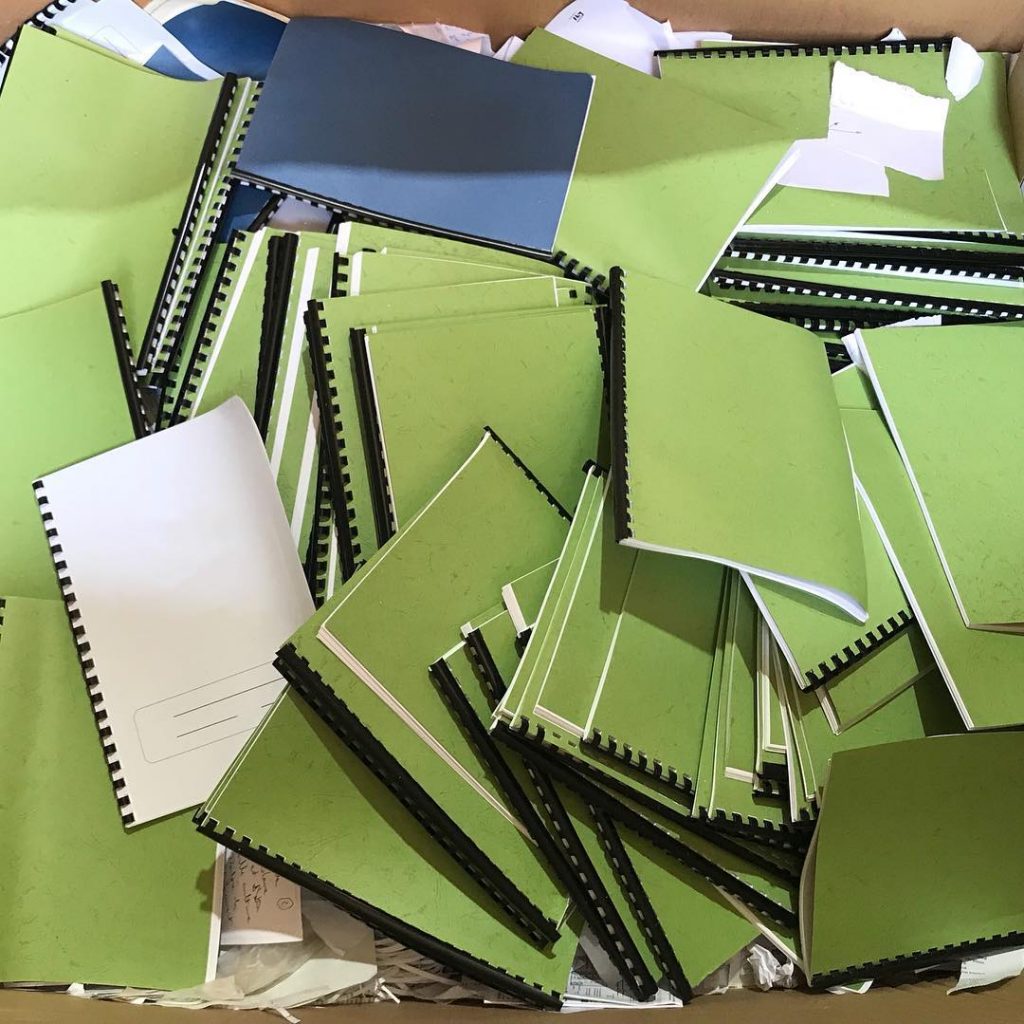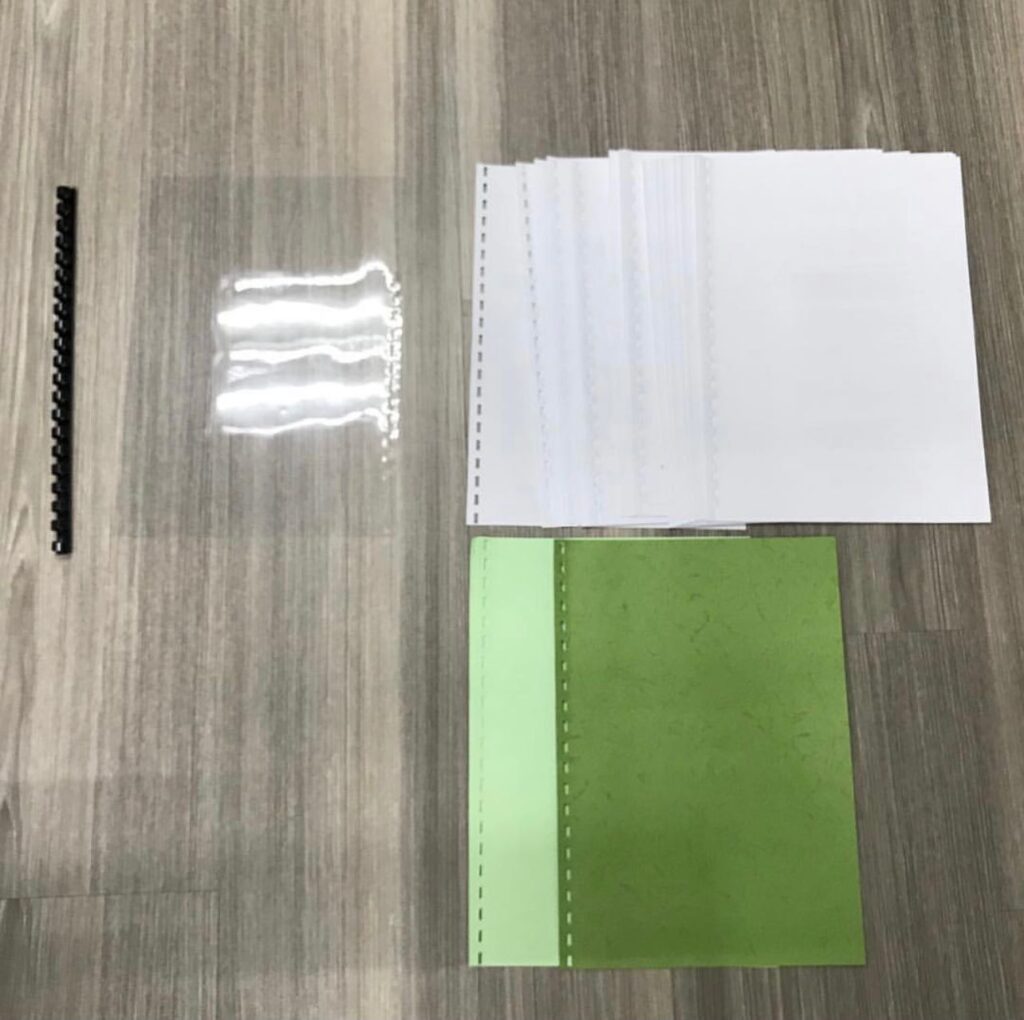Educate – Sort – Recycle
Plastic Book Binder
Learn how Gee Hoe Seng Pte Ltd (GHS) manages the proper disposal and recycling of plastic book binders and paper contents in Singapore.
Plastic book binders are common in offices, schools, and print shops — often used to hold documents or reports.
While the plastic binder and front cover are not recyclable, the paper contents inside can be recovered once separated correctly.
Educate – Sort – Recycle
Is it Recyclable?
Partially — Plastic book binders are not recyclable as a whole.
The binder and plastic front cover are made from non-recyclable plastic film.
However, the paper inside can still be recycled if clean and separated.
Educate – Sort – Recycle
Why Is It Difficult to Recycle?
Plastic book binders are made up of mixed materials — plastic covers, metal or plastic spines, and paper inserts — that cannot be processed together.
Related Links
🔗 View Our Paper Recycling Page
🔗 Refer to Our Recycling Guide


